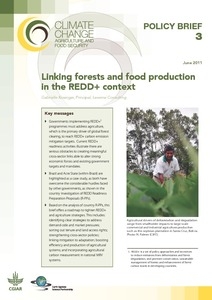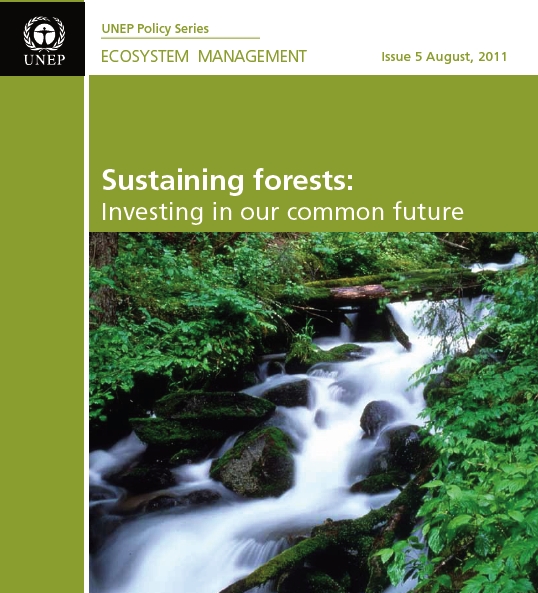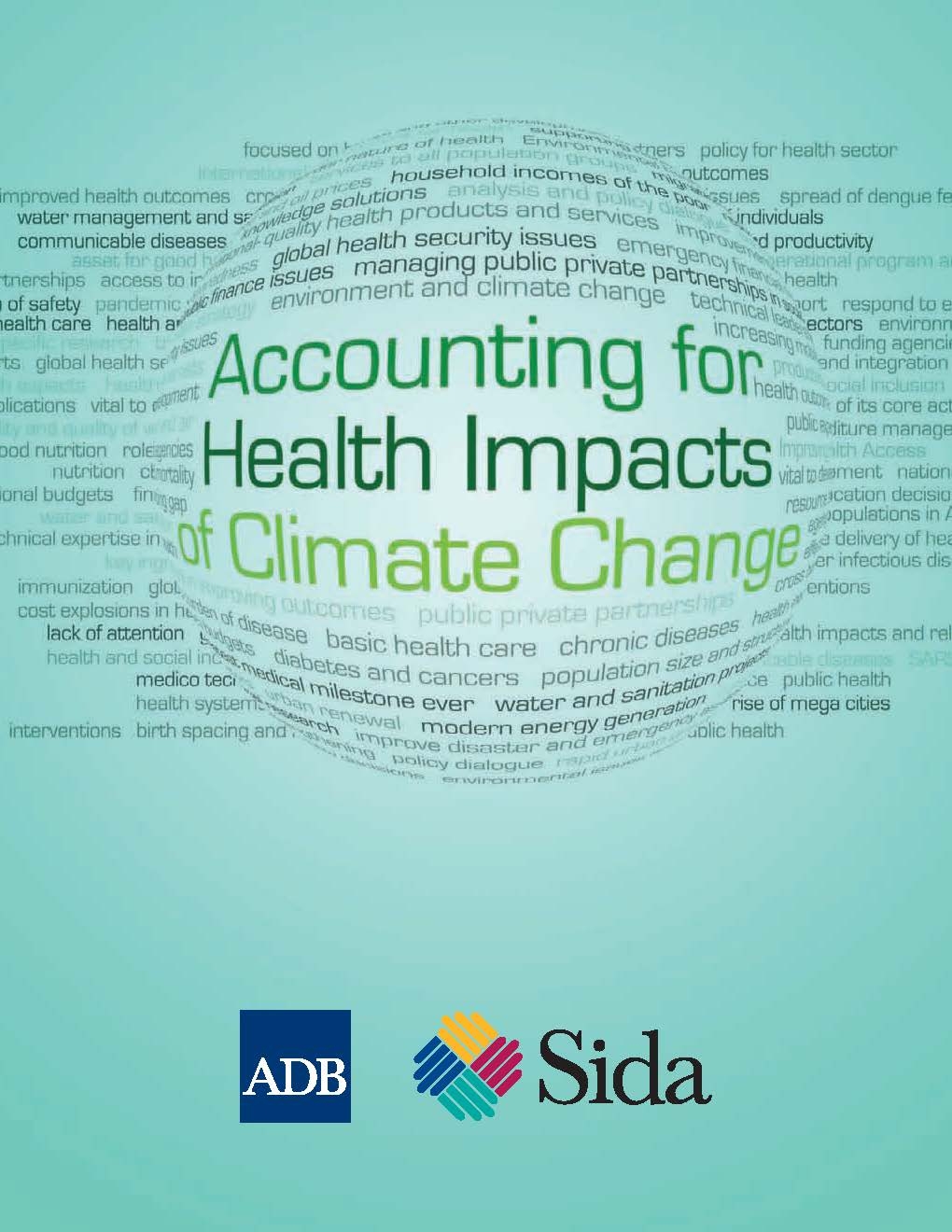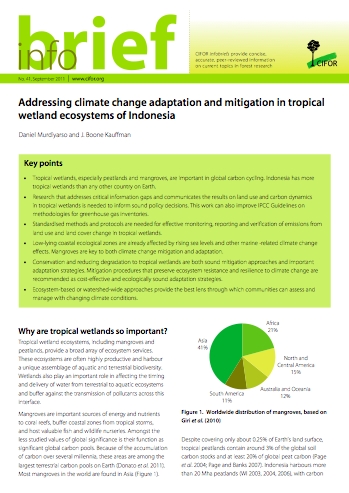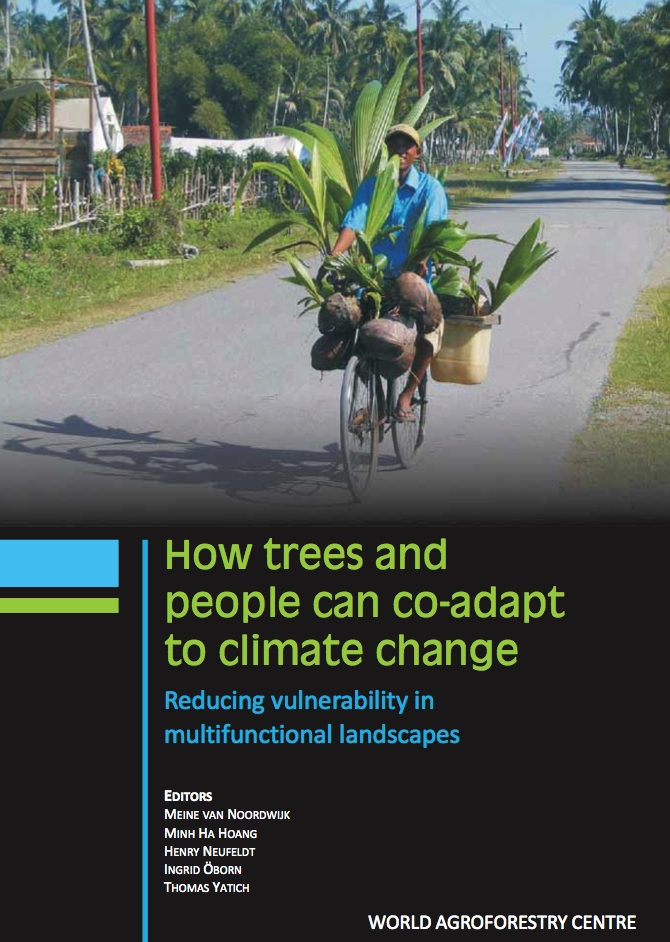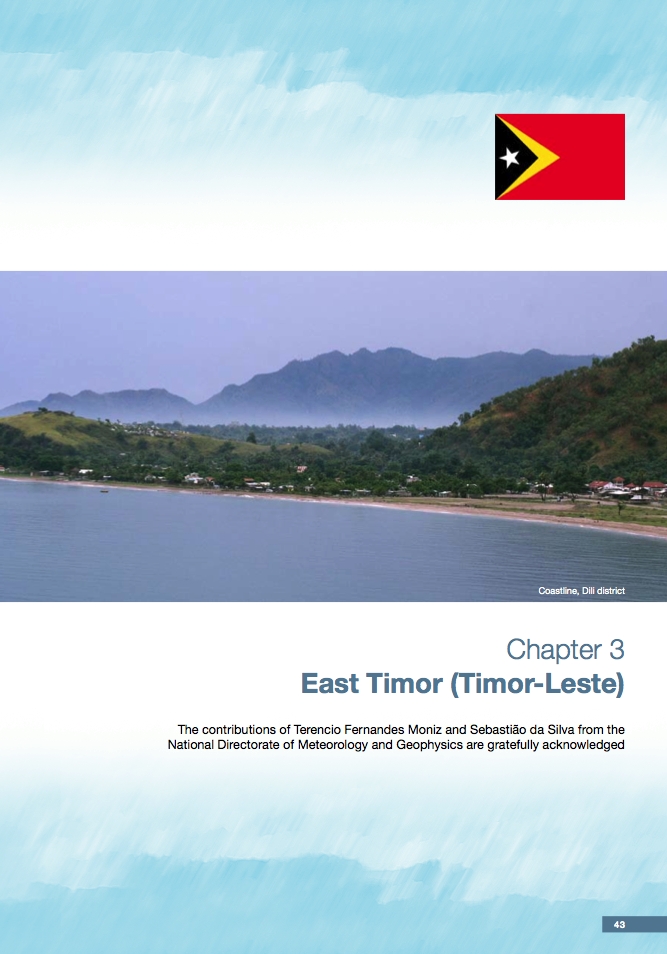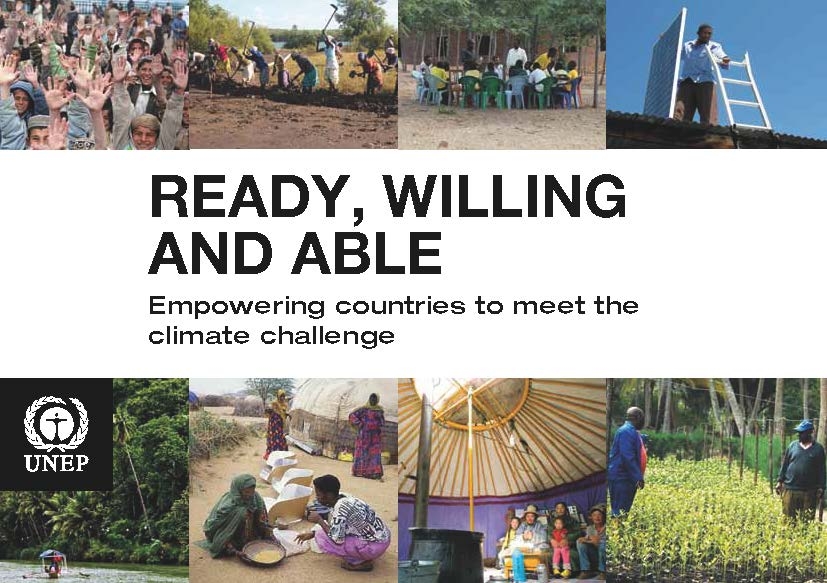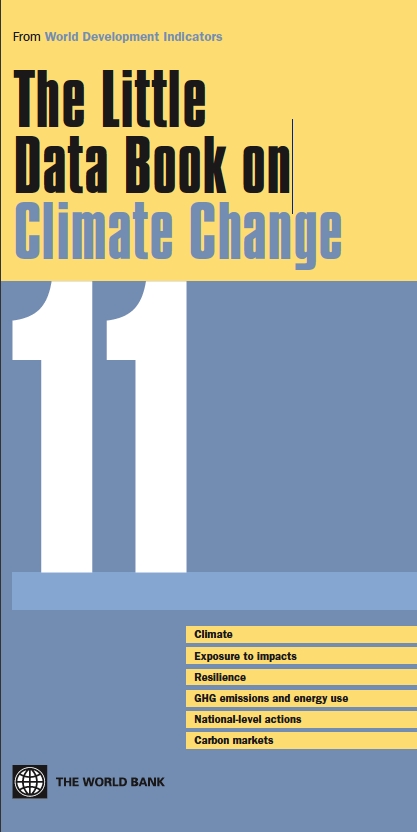Publications
This contains experience notes, adaptation notes, policy briefs, policy papers, technical reports, stories on good practices, and other publications related to climate change adaptation and mitigation in Southeast Asia not just from SEARCA, but also from KC3's partners and other agencies/institutions.
In order for REDD+ carbon emission mitigation targets to be reached, the primary driver of forest clearing globally, agriculture, must be fundamentally addressed by governments implementing REDD+ Programmes. This paper evaluates the extent to which countries participating in the World Bank Forest Carbon Partnership Facility (FCPF) readiness activities are actively linking REDD+ and agriculture policies, programmes, and institutional and governance arrangements. Based on 20 current country readiness proposals (R-PPs) submitted to the FCPF, the analysis reveals that overall, REDD+ strategies and actions generally fail to address agricultural…
Every day forests provide benefits vital to life on Earth and to the quality of human life in particular. Currently, some 410 million people are highly dependent on them for subsistence and income, and 1.6 billion people depend on forest goods and services for some part of their livelihoods. In a more general sense, the entire global population depends on forests for their carbon-sequestering services. Forests have always been crucial to human life and economies, and they will become increasingly significant as the global human population…
This publication discusses the activities and findings from the second phase of the Asian Cities Climate Change Resilience Network (ACCCRN), a program supported by the Rockefeller Foundation. Changes in climatic conditions represent one of the greatest challenges facing humanity over coming decades. Climate change poses special concerns for the rapidly growing cities of Asia, where large populations, rapid urbanization, extensive poverty and social marginalization, and an already high level of exposure to climatic extremes create risks for large numbers of people. The impacts of climate change are likely…
Asia and the Pacific host the greatest number of people vulnerable to the projected adverse impacts of climate change. Climate change is expected to modify and often to magnify the current burden of diseases in the region. With projected increases in temperature and changes in rainfall patterns (generally yielding drier climate in dry seasons and wetter climate in wet seasons), and an increase in the frequency and/or intensity of tropical cyclones and storms, climate change will significantly challenge the public health community at the global,…
The Center for International Forestry Research (CIFOR) has released an information brief, titled "Addressing climate change adaptation and mitigation in tropical wetland ecosystems of Indonesia," which calls for research to address information and communication gaps related to land use and carbon dynamics. The brief notes that coastal mangroves are important for both mitigation and adaptation, and calls for ecosystem-based or watershed-wide approaches for communities to manage wetlands. CIFOR is a member of the Consultative Group on International Agricultural Research (CGIAR).
This book focuses on the relationship between climate change adaptation, rural development and the roles of trees and agroforestry. Rewards' schemes for environmental services (RES) in multifunctional landscapes, which provide incentives for maintaining or restoring multifunctionality, will contribute to a likely reduction in vulnerability to climate change.
Climate Change in the Pacific is a rigorously researched, peer-reviewed scientific assessment of the climate of the western Pacific region. Building on the Fourth Assessment Report of the Intergovernmental Panel on Climate Change, this two-volume publication represents a comprehensive resource on the climate of the Pacific.
Meeting the climate challenge requires individuals and institutions to be able to assess and understand climate change, design and implement adequate policies and, most important of all, to take action on low-carbon and climate-resilient growth. Capacity building is a country-driven process, enabling individuals, organizations, and societies at all levels, to unleash, strengthen, build, adapt and maintain their capacities to undertake climate action.
The Little Data Book on Climate Change includes data that cover the gamut of climate-relevant topics, including current and projected climate conditions, exposure to climate impacts, resilience, greenhouse gas emissions, climate finance, and current national and international efforts to take action.
The 2011 Human Development Report, titled "Sustainability and Equity: A Better Future for All,” highlights that equity and sustainability are inextricably linked. It notes that, if bold actions are not taken, environmental damage, including climate change effects, can slow or reverse development progress made in recent years. The report was launched by Helen Clark, UN Development Programme (UNDP) Administrator, with Danish Prime Minister Helle Thorning-Schmidt on 2 November 2011, in Denmark, Copenhagen. The report emphasizes the positive synergies between greater equity…

